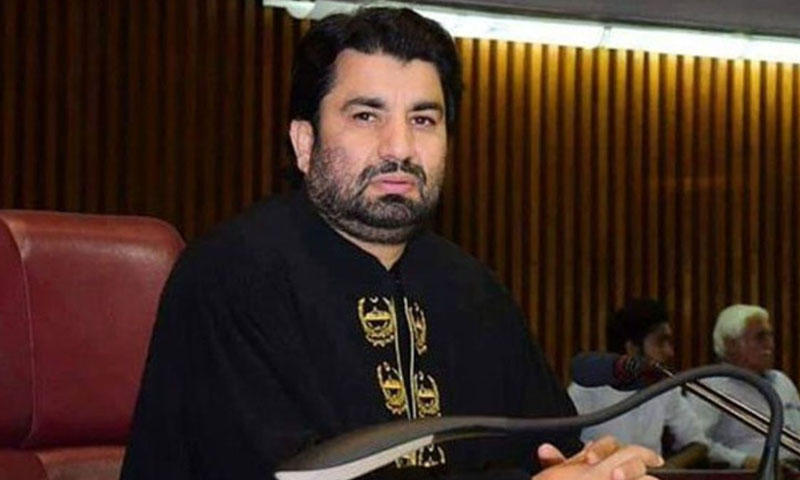- Web Desk
- Feb 09, 2026
MHNP — govt’s apathy pushes Islamabad’s ‘green heart’ to the brink
-

- Abobakar Khan Web Desk
- Feb 27, 2025

ISLAMABAD: Once an enclave of rich biodiversity and natural beauty, the protected Margalla Hills National Park (MHNP) is now besieged by urbanisation, encroachments and development threats from every flank.
Located on Islamabad’s northern extremities, it has been a great green space for the locals, tourists, and wildlife for decades. Yet the increasing onslaught of urban expansion, illegal encroachments, and unchecked development is threatening the very existence of this national treasure.
Spanning over 17,000 hectares, the park is home to a large number of flora and fauna, including leopards, wild boars, monkeys, and an innumerable number of birds. The beautiful nature walks provide breathtaking views of Islamabad and its mountainous landscapes. But despite its status as a national park, environmentalists and local residents find it alarming that this part of the park is often subjected to rampant encroachments.
Among the most conspicuous issues is the encroachment of park lands for commercialisation and residential encroachments
The huge fast-paced urban growth in Islamabad has seen developers eyeing it as prime real estate. In addition, this has already happened in the form of illegal and uncontrolled constructions and land grabbing, and the alarm bell is sounded by environmental advocates that the rich and rare biodiversity of the park would face extinction if the trend is not reversed.
Also read: Dissolution of Islamabad wildlife board sparks controversy
“We’ve seen developers build constructions on the edges of the park, and some have even cleared forests to make way for new developments. This is not just an environmental concern, but a loss of heritage,” said Asim Khan, a local environmentalist.
There is a Supreme Court order regarding the Margalla Hills National Park, issued by former chief justice Qazi Faez Isa, which says, “the national park land is under grave and imminent danger. The rich, powerful and well-connected want to wrest it away for their personal use and/or gain. This must stop. The people cannot be deprived of the National Park, its flora and fauna, and of the benefits of this amazing national asset. Government servants who collude with land grabbers also need to be reminded that it is the people who pay their salaries and it is them who they serve and whose interest they must protect. Those who forget this fundamental truth are a drain on the public exchequer. Private interests and those marauding public lands must not be allowed to deprive the people of Pakistan and future generations of it. If we lose the National Park the adverse effects of greenhouse gases, deforestation, soil erosion, pollution and climate change will be exacerbated to the detriment of the people and future generations.”
According to sources aware of the Margalla Hills National Park issue, the CDA not only did not comply with the court order but also created hurdles to its enforcement.
The source said that after the destruction of the natural beauty of Rawal Lake and Shakarparian, the CDA is now trying to destroy Margalla Hills National Park with the backing of the federal government.
Sources also said that when MHNP officials met with CDA Chairman Muhammad Ali Randhawa and expressed our concerns about the park, he claimed that they (CDA) aim to make it beautiful. In response, the official told him, “you are not supposed to make it beautiful but rather preserve its beauty.”
Sources said the CDA cannot do anything unless it approached the Supreme Court and challenge its order.
According to the sources, the CDA wants to build hotels and other commercial developments on the park’s land.
When asked if the CDA fails to comply with the Supreme Court order what would happen, MHNP sources said that if the Supreme Court’s order is not implemented, “we will pursue every legal option to ensure the protection of national park.”
The park is also now facing environmental degradation due to rising pollution and unsustainable tourism practices.
Weekend visits have resulted in careless trash, damaged pathways, and hostile wildlife disturbance. For example, hikers and tourists bring plastic trash to the area, and some people hunt illegally or harm the local wildlife.
“The park is struggling to cope with the pressure of over-tourism. While it is a major tourist attraction, there’s a lack of proper waste management system and facilities to handle the crowd,” said Zahra Ali, an environmental scientist based in Islamabad.
Critics maintain that the government has failed to provide a proper regulatory framework to protect the park. Though the park is a designated national reserve, local authorities are struggling to enforce laws protecting the area from encroachments and environmental damage. The introduction of legal loopholes and lack of enforcement funding have aggravated the problem. These loopholes have permitted construction projects to continue with little or no oversight whatsoever.
“There are laws, but implementation is the real concern. The developers find ways to bend the regulations; these authorities either take too long to respond or lack the financial backing to act,” said Faiza Naeem of the Islamabad Wildlife Management Board.
Development projects are considered a threat to invade and disrupt the natural ecology of the park.
A balanced strategy that allows for some urban expansion without endangering the environment is what some would like. The experts suggest a comprehensive management strategy that would control development in the park’s immediate vicinity, encourage sustainable tourism, and prevent species from collapsing. Development initiatives pose a danger to the natural environment of the park. They say a balanced strategy that permits both urban expansion and environmental preservation should be pursued. Experts have demanded a thorough management plan in order to save species, encourage sustainable tourism, and control development in the park’s surrounding area.
“The key is finding a balance between urban growth and conservation. We cannot afford to sacrifice our natural heritage in the name of progress,” said Shoaib Khan, a local activist who has been at the forefront of Margalla park’s preservation efforts.
“The key is finding a balance between urban growth and conservation. We cannot afford to sacrifice our natural heritage in the name of progress,” said Shoaib Khan, a local activist who has been at the forefront of Margalla Hills National Park’s preservation efforts.
The Margalla Hills National Park is much more than just an environmental asset — it is an integral part of Islamabad’s identity. A battle has begun over the very essence of this park: Should the city continue cherishing its green spaces, or yield to the pressures of unrestrained development?
With the fate of the Margalla Hills National Park at stake, environmentalists and experts have urged the government to ensure the protection of this national treasure from the relentless tide of encroachment and neglect.




